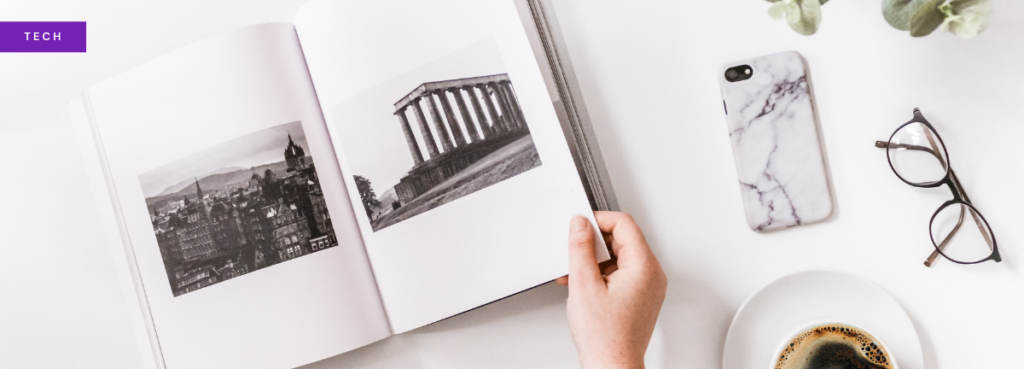Work smarter, not harder: how automation can help you reach influencers more efficiently

Can you remember when social media wasn’t a thing? Book marketing looked a whole lot different in those days. But since the rise of platforms such as YouTube and Instagram a new world of opportunities has opened to sell books. Has your company been able to keep up with these changes? In this article we’ll look at a specific part of social media marketing in which you can make some time-efficient measures so you will have more time to focus on all your other marketing activities.
IT and automation are becoming more and more important to publishers. Even for publishers who produce paper books, the processes that follow are mainly digital. Book marketing and sales are activities that happen predominantly online: think of Google Search ads, YouTube display marketing, Facebook ads, LinkedIn campaigns, affiliate marketing or influencer marketing. There’s a whole lot of activities to juggle and they all take time and skills!
So, let’s talk influencer marketing. This is a type of social media marketing that uses individuals to promote or endorse products or services to their audiences. These individuals are often seen as experts in their niche which makes them trustworthy. You might have heard about travel influencers that fly around the world, staying for free in hotels in exchange for a blog or pictures of them lying on the side of the swimming pool. Or beauty influencers that test a new line of makeup and get paid large sums by the industry for their efforts. There’s good news for the book industry, we have our very own influencers: book influencers!
BookTube as a subcommunity
One of the most eye-catching examples of book promotions by use of book influencers was done by the Obamas. When Michelle Obama launched her memoir Becoming in 2019 she teamed up with YouTube to create a special BookTube series about her book. They invited some of the largest book influencers to ask their questions in a talkshow-like setting. After Michelle Obama many others, including Margaret Atwood, James Patterson, and her own husband decided to take the same route. It shows how important publicity on a medium like YouTube is and how authors trust BookTubers to spread the word about their book.
BookTube has been around since 2010, created by the book community as a subgroup on YouTube. By calling themselves BookTubers and talking about their videos as being on BookTube instead of YouTube they could easily find each other’s creations, those creations being videos about their love for books. BookTubers have created different types of video formats, for example book hauls in which they present the books they bought or received, wrap-ups in which they discuss the books they’ve read and bookshelf tours in which they proudly present their bookshelves full of the books they love.
#Bookstagram
With the growth of Instagram a new phenomenon arose: Bookstagram. If you do a hashtag search on Instagram today you’ll find over 57 million hits, meaning there are thousands of people adding pictures and videos about the books they read. If you broaden your search and add #bookstagrammer to the mix you’ll find another 9 million hits. Bookstagrammers make different types of content such as pictures of the books they just read or Instagram Reels in which they present a book in a short music video.
BookTok
Did the description of Instagram Reels make you think of another platform? You’re right, it’s the Instagram version of TikTok. The youngest bookish creators love to express their passion for books on this fast growing platform. They are called BookTokers and some of them already have a reach of over 100,000 followers. As the majority of TikTok’s users are under 24 years old, this means that TikTok is a very good way to reach a young audience.
Increased spending on influencer marketing
We all know the value of word-of-mouth promotions and how people tend to trust the opinions of their peers over advertisements by corporates. This makes influencer marketing very interesting. A survey by Influencer Marketing Hub with 5000 respondents from marketing agencies, brands and other relevant professionals states that 90% of respondents believe influencer marketing is effective. Half of the brands that responded to the survey spend over $10,000 a year on influencer marketing, 9% spending over half a million.
In-house challenges
The same survey states that finding the right influencers is the most significant challenge for those running campaigns in-house. It’s a time-consuming matter: unread emails, landing in second inboxes on Instagram, sending out products while not knowing for sure whether they will make it into a blog or Instagram post, keeping track of all these people in spreadsheets. It’s a lot of work!
Because of the rise of influencer marketing we have also seen a growth in influencer marketing agencies and platforms, helping brands find the right people for their marketing campaigns. They don’t only mediate for influencers in travel, fashion and makeup anymore. There are niche platforms too that specialise in industries, even for publishers and authors.
Seeing that influencer marketing is taking a larger cut of the marketing mix every year, have you optimised these processes? Can automation by use of a platform make your work easier? Share your thoughts on this subject in the comment section below.
Antina van der Veen is the founder of Bookstagrammers.com, a time-efficient influencer platform for the book community. She offers a free trial to publishers that would like to test the platform for their next book promotion.





